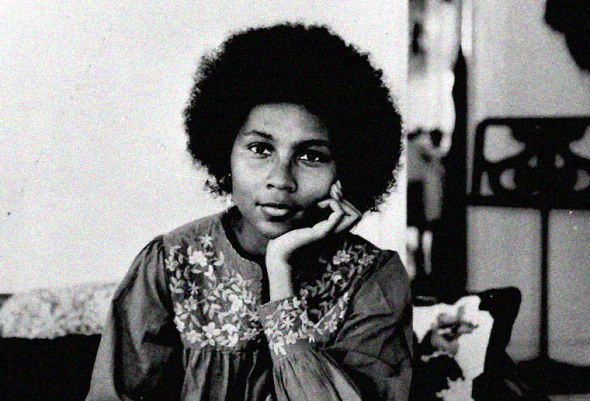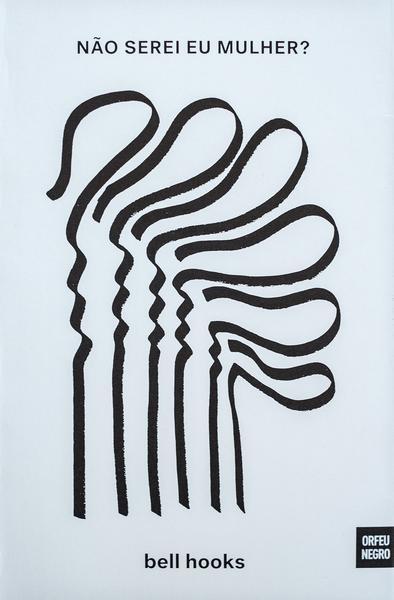bell hooks: is there an us “women?”
In the feminist and civil rights movement, from the suffragette struggle (between the end of the 19th century and the first half of the 20th century) through to the 1970s, black women always found themselves at a difficult crossroads: they couldn’t talk about gender issues so as not to distract from the important fight against racial oppression, nor was it appropriate to bring up racial issues so as not to sideline the denunciation of sexism. Thus, despite the proclaimed alliances and the desired sorority, the “families” that made up feminism - white, black, poor, rich, African, European, northern, southern, country, city - always looked at each other without truly seeing each other. They rarely wanted to understand each other’s differences and needs. And even today it is still an ambition to think of feminisms in international terms in their specific contexts.
What is certain is that the visibility and leadership of the movement has focused more on white, middle-class feminists who tend to rank and dissociate racial concerns from gender ones.
Finding no place in female emancipation that didn’t include two conditioning and determining elements in her life — “my having been born black and my having been born female” (p.12) — the American bell hooks (1952 - 2021) wrote, in an interrogative mode, in search of this intersected identity: of class, gender and race. Her personal experience would be the starting point for the social experience: “before I demanded that others listen to me, I had to listen to myself.”
Thus, the “fearless young black woman from rural Kentucky,” who aspired to be a free and independent woman during her university years of politicization and knowledge, wrote this book-manifesto in 1981, which would only be published when she was approaching her thirties. The book Ain’t I a Woman became a classic about the demanding struggle of black women to find and establish their way of living feminism.
In a colloquial and somewhat circular argumentative style, the book revisits - in history, in literature and in the challenges of American society - these interconnected themes: sexism during slavery, the devaluation of black femininity, the machismo of black and white men, the links between imperialism and sexism, racism camouflaged in feminism and black women’s resistance. The author argues that racism and sexism, institutionalized as patriarchy, are at the base of the social structure, in this case in the United States, but can be extrapolated to many other societies, such as our own.
By criticizing the various feminisms that have left out the experiences and social places of black women, she shows how they have had to carve out their own path of resistance. The identity of womanhood had already been challenged by hooks, who identified the systemic exclusion of an immense group of women, racially and sexually oppressed throughout history, “always perceived as Others, as de-humanized beings” (p.138) and the universality of the term “woman” is a crude attack on black women.
 bell hooks
bell hooks
hooks also points to class constraints in feminist movements, where white women have undoubtedly always had the upper hand, with greater access to information, education and leadership skills. She also points out that the feminist movement has hardly been able to denounce capitalism, making the idea of emancipation correspond to the acquisition of economic status and financial power. An interesting aspect of her argument is, for example, when she recalls that the French feminists’ demand for access to work meant precisely the opposite of liberation for black women - they had always worked and been exploited. “This emphasis on work was yet another indication of the extent to which the white female liberationists’ perception of reality was totally narcissistic, classist, and racist” (p.147). Lamenting the difficulties black women had in organizing themselves and the moments when, either by prioritizing certain struggles or by internalizing prejudices, they held back their emancipatory desires, hooks revisits some progressive voices from the 19th century. Like that of Sojourner Truth (1797-1883) and her speech “Ain’t I a Woman?”, at the Ohio Women’s Convention at Akron in 1851, in which she appealed to the lost humanity of enslaved people (according to hooks, she even showed her breasts to prove she was a woman).
We are also immersed in the traumatic experiences of the black slave, who was then “exploited as a laborer in the fields, a worker in the domestic household, a breeder, and as an object of white male sexual assault” (p.22). and, often, black. For the author, the rape of female slaves was an accepted method of terrorism with the aim of demoralizing and dehumanizing black women, which still impacts us today. If one lived in a generally misogynistic world, the deviation from Christian doctrine in the 19th century changed the perception of women: the shift “from the image of white woman as sinful and sexual to that of white woman as virtuous lady” (p.32) occurred simultaneously with the sexual exploitation of black captives, reinforced by myths of their promiscuity and immorality. Black femininity was constantly devalued, particularly through the false idea of the matriarch - a strong woman who can endure anything - stereotypes that still affect black women today, who are discriminated against at work, in society and, not least, attacked by morality.
bell hooks also points out that the anti-racist movements and black nationalism also proved to be misogynistic and had little interest in breaking out of the patriarchal bubble. If they called for an end to racial divisions, they strengthened sexist ones. In other words, within their communities, black women have always experienced a dominant machismo.
This book, published in 1981 by South End Press, is an important acquisition for Gender Studies, Black Studies and philosophy. It is essential reading in a context where the fight against ethnic, racial and gender discrimination still has a long way to go. FEMAFRO, an association led by black, African and Afro-descendant women and girls, and INMUNE, an “Intersectional and anti-racist feminist” organization, have come to counter the historical and current silencing of black women in Portuguese society.
As part of the debate on the urgency of putting an end to the biased denial of racism, bell hooks is assertive in her defense that the struggles against patriarchy and racism must go hand in hand, and that this is even the political foundation that lends breadth and sincerity to the feminist movement as a whole. This 1981 warning not to exploit feminism according to the interests of certain women is still very relevant today. The movement would gain much more meaning by representing the experiences of the greatest diversity of women, with their vulnerability and strength, building sorority without a trace of competition or neglect.
